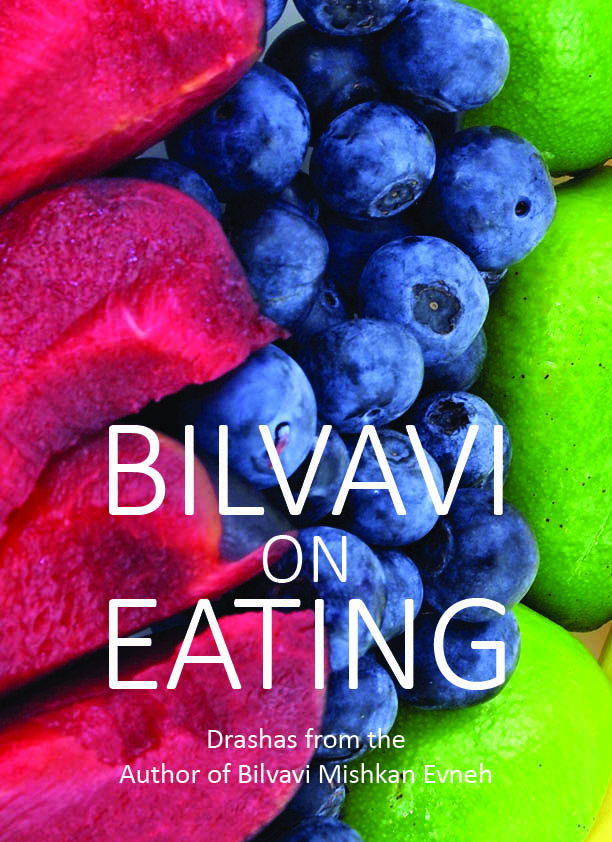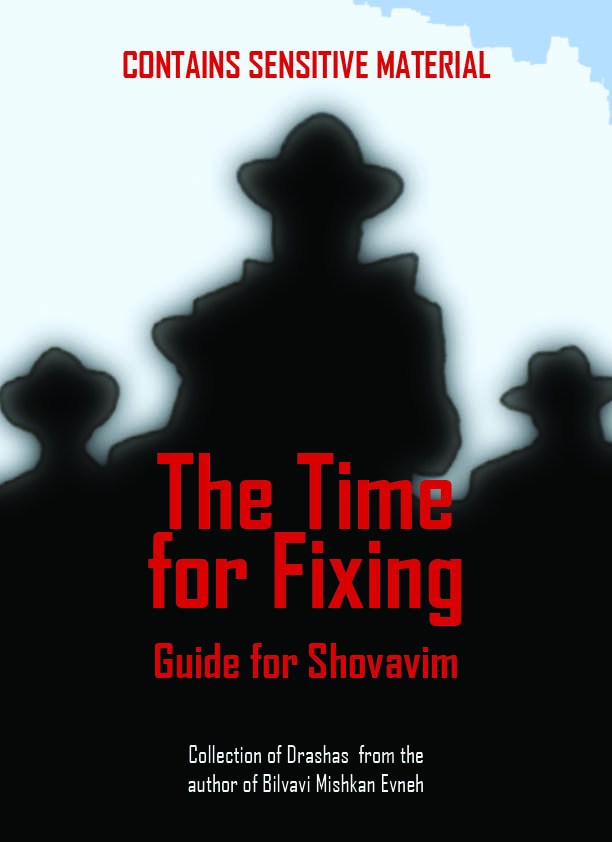- להאזנה דע את שמחתך 014 שמחה ממלחמה
014_Happiness Through Challenges
- להאזנה דע את שמחתך 014 שמחה ממלחמה
Getting to Know Your Simcha - 014_Happiness Through Challenges
- 7557 reads
- Printer-friendly version
- שלח דף במייל
Happiness Is Through Challenges
(Summary: So far, we have explained three kinds of happiness: intrinsic happiness (which is a deep kind of happiness that is impractical for us) goal-oriented happiness, and happiness from appreciating details.
The second kind of happiness – to be goal-oriented – is to be happy as we are actually trying to get to a goal. This we explained already, and we also explained another aspect in this – that happiness comes precisely from challenges. Simchah (happiness) has the same letters as the word chamesh, weapons of war. This shows us that happiness can come to us only when we endure a war – when we face our challenges. We will explain what this means.)
Happiness Is Not Pleasure
Let us differentiate between simcha\happiness and oneg/pleasure.
Pleasure is called oneg, which is found mainly on Shabbos. Happiness, which is simchah, is found mainly on Yom Tov; this shows us that oneg and simchah are not the same thing.
What indeed is the difference between pleasure and happiness?
Pleasure is your actual existence. Our existence is essentially oneg\pleasure – on the ideal level, a person enjoys the fact that he exists. Simcha\happiness is the way you get there; meaning, when I am happy, I enjoy my existence.
We are not discussing the power of pleasure; we are discussing happiness.
Sadness Comes From Earth, Happiness Comes From Wind
We have begun to explain that being happy means appreciating our efforts to get to our goals, and that the depth behind the happiness is that we overcame a struggle. Therefore, we need to learn how be happy with our struggles in order to conceptualize this.
When we feel a challenge, the sadness we feel from it is rooted in the element of earth in creation. Sadness comes from earth. Happiness, by contrast, is a light feeling, so which element is it rooted in? Wind is the lightest from all the elements. (Pleasure, though, is rooted in water). What holds back wind? Earth blocks wind. This shows us that sadness blocks us from being happy.
Before the first sin, happiness was rooted in the element of fire, and after the sin, the happiness we know of is rooted in wind, the moving force in creation (and as we said, we need to see ourselves as “moving” in order to be happy). Wind can oppose our earth; we need use our “wind” to overcome our “earth”, so that we can get back to our natural happiness. We must overcome our tendency toward sadness – the state that got created from the first sin - by using our happiness, which is using a power that existed before the sin.
Happiness – Overcoming A Struggle
Happiness is not just to be on our way toward a goal. We can only be happy if we create something out of our efforts. In order to be happy, one has to come out of a certain path – sadness – and arrive at a new path, happiness. (Until now, we only described how to derive happiness from our efforts. Now, we will explain the second part to our happiness, which is to derive happiness from our achievements).
A person’s efforts might either lead toward sadness or happiness. How can a person know if he is headed toward happiness or not? Maybe he’s involved in an undertaking that won’t bear any results?
In Egypt, there was physical labor. It was avodas perach, cruel labor, in that the men had to do women’s labor and women had to men’s labor. They faced two kinds of problems – the hard labor, which was physical pain; and a more spiritual kind of problem, which was that they were “short of breath.” (koitzer ruach). They were short of breath because since they were doing things that were not for them, this was a spiritual kind of pain.
This shows us that in our life, a person can have two kinds of problems. Our physical problems are rooted in the element of earth, while our spiritual problems are rooted in wind. If our problems are “earth”-related, then our struggles are physical, and these struggles don’t bring us happiness. But if our problems are “wind”-related – our pain is spiritual pain, and if we identify this as our main source of pain in our life, such struggles can bring us happiness.
All of us have to go through a certain amount of problems in our life; that is why we are all here. That’s life. But the question is: what are the things that bother us? If our suffering is spiritual – “Praiseworthy is the man who suffers…and from Your Torah we are taught”, then our suffering revolves around our learning of the Torah, and such suffering comes from the element of wind, which is spirituality. Such problems are the problems we should be bothered about.
What really bothers us in our life? If soul matters are important to us and we have pain with our spiritual struggles, we can arrive at true happiness.
Happiness – after the sin of Adam – is rooted in wind. In order to be happy, we need to give ourselves an increase of wind. In other words, we need to search for spiritual growth. The more we search to improve ourselves, the more happiness we give ourselves.
Increasing The Happiness Every Day
If a person every day seeks to add onto his spiritual gains, he lives a life of happiness – a life of consistent gain. A person has to be gaining constantly in order to be happy, and the way to have this consistency is through always adding onto your spiritual vitality.
If someone is only happy when he overcomes physical hardship, he is only happy when he gets to the results; he can’t enjoy the struggle. But when a person has spiritual pain, not only does he enjoy what he gains, but he even enjoys the struggle.
Happiness comes from an increase in our “wind” – an increase in our spirituality. Our spiritual gains, on a consistent basis, give us strength to deal with problems.
We bless a chosson and kallah that they rejoice “like your Creator rejoiced in Eden.” How come people lose this great happiness a little bit after the wedding? It is because their happiness is based on externalities, which are superficial. A wedding is a dose of spirituality, but it is only a little bit and not enough to keep the happiness going. The only way to stay happy is to keep increasing the happiness, which is by adding on more and more spirituality every day.
To Want Vitality Out of Life
Happiness is when we constantly increase our quality of life. This doesn’t mean to grab on to more and more things in our life. It means to add onto our spirituality. The more wind we add onto ourselves, the more life we give ourselves.
Why do most people fear death? It is because most people think that they are a body, and that everything in life centers around what will happen to their body. For someone who lives for his body, it is indeed very scary to think about death: “What happens to me when I die? My body is no more….”
Everyone wants to live, but from where does this desire come from? It is usually because people think they are a body, and so there is a great fear of death. The “will to live” comes from the body.
Really, the will to live is a power rooted in the soul; the soul has a desire for life, but it desires a life of spirituality; it wants true chiyus (vitality). The body, which covers over our soul, misuses this power to have a will for physical interests.
Torah Lishmah
This is really the depth of who truly learns Torah lishmah – for the sake of Heaven. Many explanations are given, but the most simple explanation of Torah Lishmah is someone who learns because the Torah is his life; anyone who learns for anything other than this reason isn’t learning Lishmah. Just like a person wants to breathe and drink because he wants to live, so does a person who learns Torah Lishmah learn because that is his vitality. The Torah is life to him.
Desiring Spiritual Vitality
We are not talking about “aspirations”; yes, we should want to arrive at our aspirations, but we mainly need to have a desire for spiritual vitality. Everyone has many aspirations and goals, but we need vitality now, right this moment. We need to demand for ourselves spiritual vitality. This is not a small side issue; it is a personal, inner redemption to our soul.
There are ways we make our body happy, and there are ways we make our soul happy.
What is happiness of the body? Anything which comes from an external factor – and on a more subtle note, even if it is a spiritual kind of desire – is only happiness of our body. This is because if we don’t consider it to be our will for vitality, then it is just happenstance to us, and it will not give us vitality (even if is spiritual pleasure). Happiness can only come from our will to sustain our soul.
Everyone wants to live, but the question is what kind of life do people want: to be physically healthy - or to have spiritual vitality?
The true happiness one can have is not the regular kind of happiness we know of. Most people are looking for all kinds of fun and entertainment, because they think that this is happiness. But it’s really a form of sadness. In fact, most people never even once experienced true happiness.
Accessing Vitality
Our soul longs for a spiritual kind of vitality; we need to listen to our soul and hear how it desires the real life.
In a time of danger, anyone can feel happiness at the fact that he’s alive; they feel an increase of life and realize how they take life for granted. But usually, no one feels this appreciation of life on a regular basis.
One should therefore pay attention to the times that he feels that he doesn’t have vitality and to the times where he feels a burst of vitality. You need to connect to this desire to always want to increase your spiritual vitality -- to desire it constantly.
The fact that we must continuously seek to add onto our vitality is a reality. It is part of the way Hashem designed creation.
Usually people think that this means to think: “What have I gained?”, but really, it’s a connection you must have with your soul.
You need to connect to the point in your soul which seeks spiritual vitality. One who succeeds in concentrating on this point in his soul for a while will see a lot of success in his life.
Two Ways How We Can Feel This Vitality
How can a person have this vitality every day? Anyone who comes up with Chiddushei Torah (new Torah thoughts) every day can feel this burst of life we are talking about.
If someone is not at that level of coming up with Chiddushei Torah, how can he get this vitality?
There is something everyone can do, no matter what level you are on. Every person must seek a spiritual kind of life, and to want to add onto his spirituality every day. In order to do this, one has to listen to what’s going on in his soul -- and he can then hear his soul’s longing for spirituality.
This is something that is within reach to anyone, and the more a person is aware of it, the more he will demand from himself to add onto his spiritual vitality every day. This is a great key toward happiness: to constantly add onto to your spiritual vitality, each day.
NOTE: Final english versions are only found in the Rav's printed seforim »















